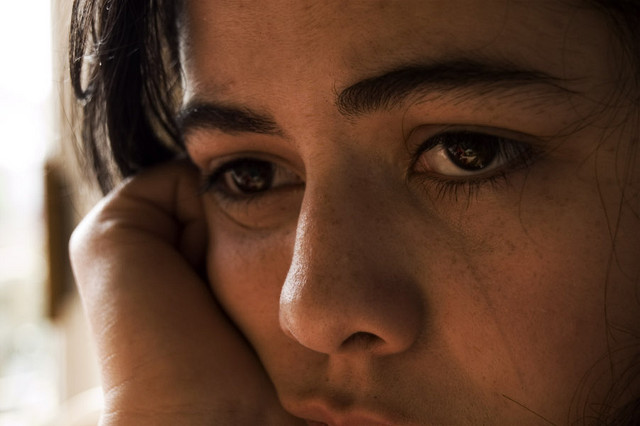- Calls to this hotline are currently being directed to Within Health or Eating Disorder Solutions
- Representatives are standing by 24/7 to help answer your questions
- All calls are confidential and HIPAA compliant
- There is no obligation or cost to call
- Eating Disorder Hope does not receive any commissions or fees dependent upon which provider you select
- Additional treatment providers are located on our directory or samhsa.gov
Obesity & Binge Eating Disorder

The size, weight, and shape of all bodies are different, with no two alike, even if they are both struggling with disordered eating. Even so, research does indicate that there is an association between obesity and binge eating disorder (BED).
The Term “Obesity”
Obesity is a controversial term these days, with many stating that it is derogatory and stigmatizing while others tout that it is “a standard medical term that is used to describe excess body weight [1].”
One study attempted to learn what terminology obese individuals prefer for describing excess weight and determined that the terms “fatness,” “excess fat,” “heaviness,” and “large size” were undesirable terms [1].
This study also found that individuals across the spectrum of gender and race reported the term “weight” as preferable because “it is both neutral and nonjudgmental — it does not imply any negative attributes or impose any personal blame [1].”
Even so, most research articles and medical professionals use the word “obese” to describe weight. Therefore, that is the term that will be used in this article. Please understand that no judgment is implied in using this term.
Physical Effects of BED and Obesity
As mentioned above, no “one” body type is a red flag for any eating disorder. Individuals struggling with BED run the gamut on their body shape, size, and weight. With that said, researchers have found a relationship between BED and obesity, reporting that those with BED are 3-6 times more likely to be obese [2].

Individuals with BED and obesity are also at increased risk of respiratory and gastrointestinal diseases [2]. BED has been found to have a fivefold increased risk for diabetes, and the prevalence of individuals with BED and Type 2 diabetes ranges from approximately 1.4% to 25.6% [2].
The Connection
The above research makes it clear that BED symptoms and obesity pose a dangerous combination to one’s health. There are many aspects that contribute to this, namely that individuals with BED often binge or overeat foods that are higher in calories or fat [3].
Additionally, individuals that are obese or struggle with BED also report experiencing depression, which can result in a lack of motivation, isolation, decreased exercise or physical movement, and increased stress eating.
Both populations are also shown to lack proper knowledge of exercise and self-care [3]. If you or a loved one struggle with obesity or BED, seeking professional support can help minimize the health risks described above.
Resources:
[1] Volger, S. et al. (2012). Patients’ preferred terms for describing their excess weight: discussing obesity in clinical practice. Obesity, 147-150. [2] McCuen-Wurst, C., Ruggieri, M., Allison, K. C. (2017). Disordered eating and obesity: associations between binge-eating disorder, night-eating syndrome, and weight-related comorbidities. Annals of the New York Academy of Sciences. [3] Lyons, L. (2017). How are binge eating disorder and obesity related? Eating Disorder Hope. Retrieved from https://www.eatingdisorderhope.com/blog/binge-eating-disorder-obesity.About the Author:

As a freelance writer for Eating Disorder Hope and Addiction Hope and a mentor with MentorConnect, Margot is a passionate eating disorder advocate, committed to de-stigmatizing these illnesses while showing support for those struggling through mentoring, writing, and volunteering. Margot has a Master’s of Science in Clinical Mental Health Counseling from Johns Hopkins University.
The opinions and views of our guest contributors are shared to provide a broad perspective on eating disorders. These are not necessarily the views of Eating Disorder Hope, but an effort to offer a discussion of various issues by different concerned individuals.
We at Eating Disorder Hope understand that eating disorders result from a combination of environmental and genetic factors. If you or a loved one are suffering from an eating disorder, please know that there is hope for you, and seek immediate professional help.
Published February 14, 2020, on EatingDisorderHope.com
Reviewed & Approved on February 14, 2020, by Jacquelyn Ekern MS, LPC
